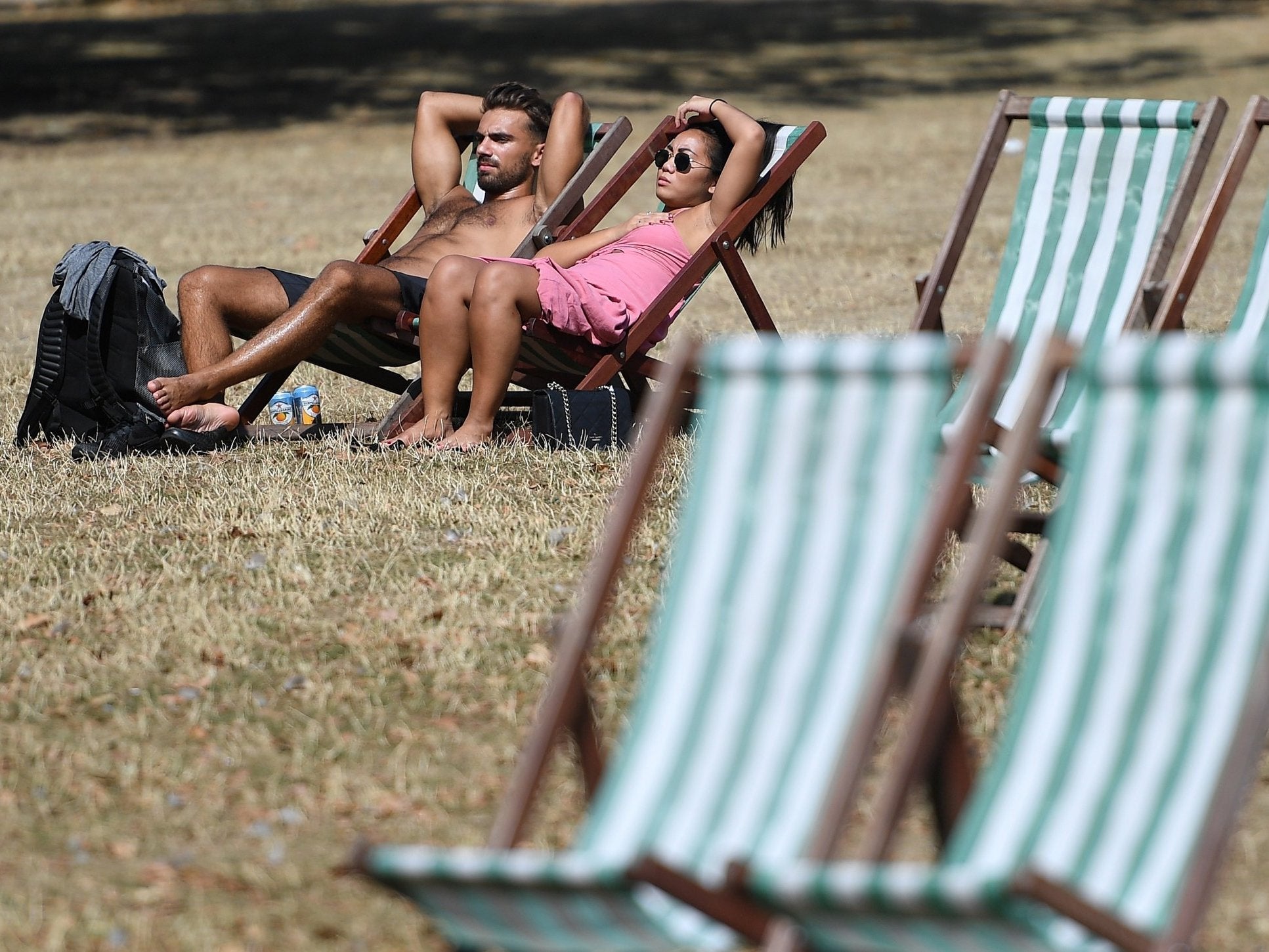Climate change: Number of UK heatwaves and ‘tropical nights’ on the rise, new Met Office report warns
Heavy rainfall is also on the increase, with extremely wet days up 17 per cent in the last decade

Heatwaves such as the one that struck this summer are lasting twice as long as they did just 50 years ago, according to a new report from the Met Office focusing on weather extremes.
"Tropical nights" in which temperatures do not fall below 20C are also on the rise in the UK as the climate changes.
The report, which tracks trends since the 1960s, marks the first study by the government agency looking at such long term trends.
It revealed scorching summer days are getting more extreme, with the hottest day of each year in the most recent decade on average 0.8C warmer than each year’s hottest days in the period 1961-1990.
And the chilliest extremes of the year are not quite as biting as they were in the past, with the lowest temperature of the year 1.7C milder in the last decade than it was in the three decades up to 1990.
Tropical nights are still rare in the UK, and are largely confined to southern England.
However, they are likely to become more common in the future as climate change becomes more pronounced.
The data shows that while the 1976 heatwave is one of the most significant heatwaves for the UK, tropical nights only really start to stand out after 1995.
Between 2008 and 2017 a cluster of tropical nights were recorded in the South East, the Midlands and South Wales.
Dr Mark McCarthy, head of the Met Office’s National Climate Information Centre which produced the report, said: “Minimum overnight temperatures of over 20C in the UK are rare currently and even during this summer this threshold was only exceeded on a few occasions.
“However, with projections in climate suggesting warmer temperatures, it is useful to have this metric in place, so that future changes can be monitored.”
Heavy rainfall is also on the increase, with extremely wet days up 17 per cent in the period 2008-2017, compared to 1961-1990, the report showed.
Dr McCarthy said: “Monthly, seasonal and annual climate data provide a valuable record of the changing climate in the UK.
“However, these average figures have a tendency to mask extreme weather and climate events.”
So the new report focuses on measures that record weather extremes to also show how the climate is changing, he said.
Scientists are increasingly confident identifying the "fingerprints" of climate change on extreme weather events, including the heatwave that struck much of the northern hemisphere this summer.
Preliminary work by researchers at the World Weather Attribution network found that the soaring temperatures in northern Europe were made twice as likely by climate change.
Additional reporting by PA.
Join our commenting forum
Join thought-provoking conversations, follow other Independent readers and see their replies
Comments
Bookmark popover
Removed from bookmarks